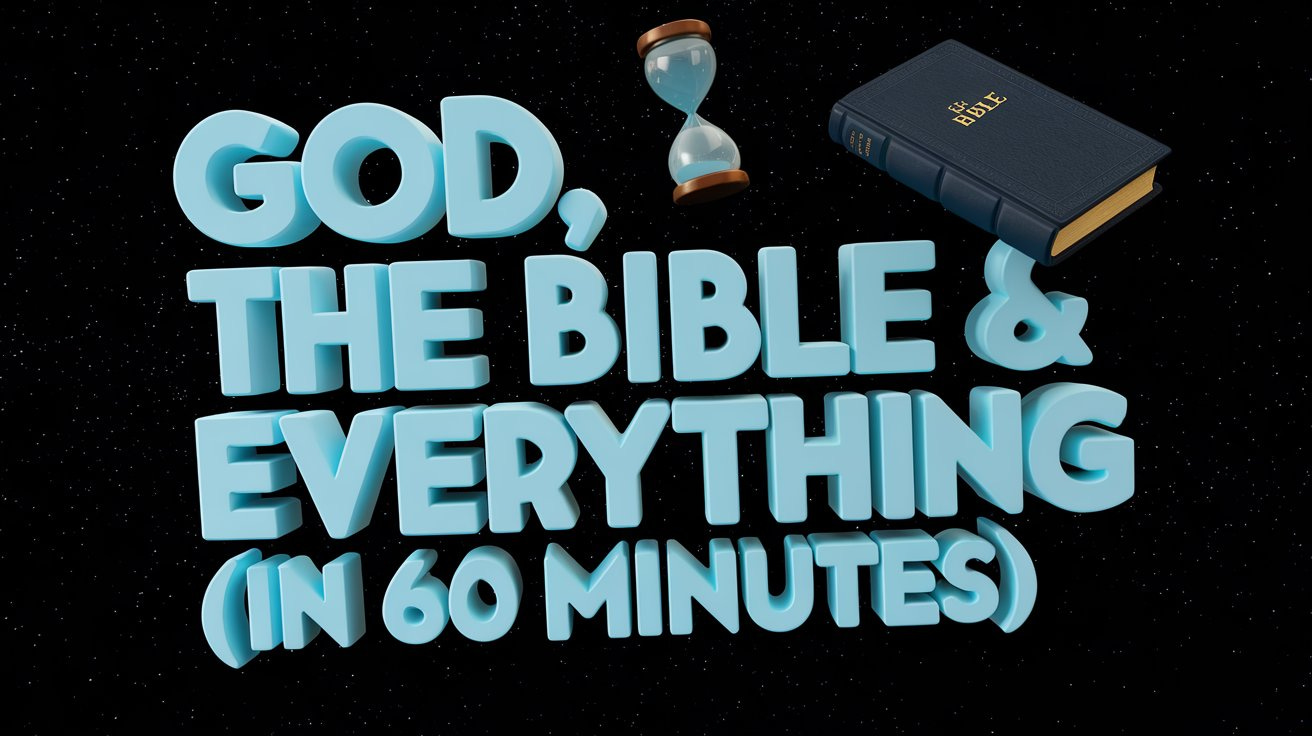Muffle the bells. Don’t sing ‘Alleluia’. Holy Week is coming.
Let me summarise the next thousand words for you:
Shut up. Stop scrolling. Listen, think and reflect.
There you go. You can stop reading now. See you next time! Please subscribe:
Why bother reading on? I’ve told you the basic idea. We’re done.
Aren’t we?
If you’re still reading, it’s because you know that a basic summary is not sufficient. Like this one:
Hobbit is given ring of mighty power. Hobbit destroys ring. The end.
I’ve saved you at least nine hours of screen time. Or weeks of reading. You are welcome.
But, like the story of The Lord of the Rings, it’s not about the message but the journey.
TL:DR and Gaining a Superpower
You may have come across some initials that speak volumes about our society: TL;DR. It means “Too Long; Didn’t Read”. Apparently, we’ve got better things to do than read pages of text, an odd assertion given how much time most of us spend staring at screens, images and text. We almost certainly have time to do the reading.
But people don’t like to read. This is a lesson I’m trying to teach my children. I tell them that reading is a superpower. It’s not because it’s difficult: it isn’t. It’s just something most people are not prepared to do. If you want to get ahead, do the reading. Read the set text. You can be certain that over half of the class, maybe even three quarters of the class, have not done the reading.
Instead of reading the set text, we turn to the ‘notes that give us the answers’: York Notes or Cliff Notes. And now Chat GPT.
Why read Much Ado About Nothing when you can just read the notes?
Because if you read Much Ado About Nothing, you’ve read Much Ado About Nothing. Your life will be all the richer for it.
Shakespeare is good. The Bible is better. Even Shakespeare would have thought that. So why are we so resistant to reading the word of God?
Bible-Adjacent Reading
Some may be reading this and bristling, thinking they are not resistant to reading the Bible at all. Quite the reverse! If you identify as an evangelical – as I would – you contend that the Bible has supreme authority over the church, and that you base your entire life around God’s word. You read it for yourself in the mornings in a time of private devotion. And your church orders Sunday worship around the preaching of the word.
So why do we read so little of it aloud in our services? Why do we only read the passage that is going to be explained, and tend to dispense with the other readings? And the singing of a Psalm? Those with a higher view of the Eucharist would not dream of skimping on God’s Word in this way.
When we read the Bible in the morning, are we actually reading the Bible? Or are we reading a few verses of scripture, and then hearing someone reflect at much greater length on those words?
Reading the Bible can be hard. It takes a long time to acclimatise and find our way around this library of inspired books. If we reach for the explanation, the sermon or the commentary too quickly, we will rob ourselves of experiencing the word of God which comes to us as literature.
Surrender
CS Lewis, who voraciously read everything, wrote this is in An Experiment in Criticism:
“The first demand any work of art makes upon us is surrender. Look. Listen. Receive. Get yourself out of the way.”
Do we surrender to the text? Not the teaching of the text, or ‘the main point’ of the text, but the actual text itself? Do we read it and savour it? Do we think about it? Do we look, listen and receive, noticing the turns of phrase, the unexpected emphases or the fact that someone says something odd? Too often, we gloss over the text, assuming we know what it says, and we don’t. We need to pay attention.
Does reading the Bible make us uncomfortable and frustrated? Perhaps the names and places are alien to us. That’s okay. We can consult a map and get our bearings. We can learn how to pronounce odd names. We can even make notes.
But let us not leap to commentaries which, in my experience, often fail to comment on the elephant in the room, to the point where it’s not clear they’ve even spotted the elephant.
There really is no substitute for reading the text itself and meditating upon it, just as reading Much Ado About Nothing itself or, better, hearing it read aloud, is the best way to come to grips with the text.
Silent Days
This is why Aelfric did not provide homilies for Thursday, Friday and Saturday of Holy Week. A prominent Anglo-Saxon monk who played a crucial role in the monastic revival in the late 10th century, Aelfric was an influential scholar and writer, producing Catholic Homilies for general usage in churches across England. Clearly Aelfric believed in the transforming power of word and sacrament. But Aelfric called the last three days of Holy Week swigdagas, meaning ‘silent days’.
This idea was probably not original to Aelfric. It seems that he understood the need to avoid explanations for the Passion of the Christ and exhortations to behave in a certain way. He advocated giving Christians room to listen to the story told again, allowing this experience of surrendering and reflecting to do its work.
In short, shut up. Stop scrolling. Listen, think and reflect.
Next Thursday, Friday and Saturday, I plan to do just that.
Next Friday’s post will be 100% scripture. And you won’t want to read it. I’ll bet my ‘open rate’ is down. Prove me wrong.
Enjoyed that? Do you subscribe? Would you like to? It’s free and every Friday. Just pop your email address in here:
God, the Bible and Everything (in 60 minutes), my new live ‘stand-up theology’ show, plays into this ‘give me the headlines’ summary. The idea that the Bible can be summarised in one hour is part of the joke, not least because halfway through the show, I’m still on Genesis 3. But, summary is possible! In the show, I follow the story of the defeat of the serpent through the Bible. People seem to be enjoying it. On Thursday next week, I’ll be doing the show at Spring Harvest in Minehead. Other dates over the summer here:
Is there a town near you on that list? No? You can fix that. I’m taking booking for the autumn. Saturdays are going fast. But there are still lots of Thursday and Fridays. If you’re interested in my coming to your church, do get in touch. Either ‘reply to’ this email, or find out more and contact me here:
Four years ago, I wrote this:








Thank you James. Will try that. Oh and I tried listening to it read it to me. I assumed that’s AI reading it? But Sounds quite a lot like Barry I thought!!?